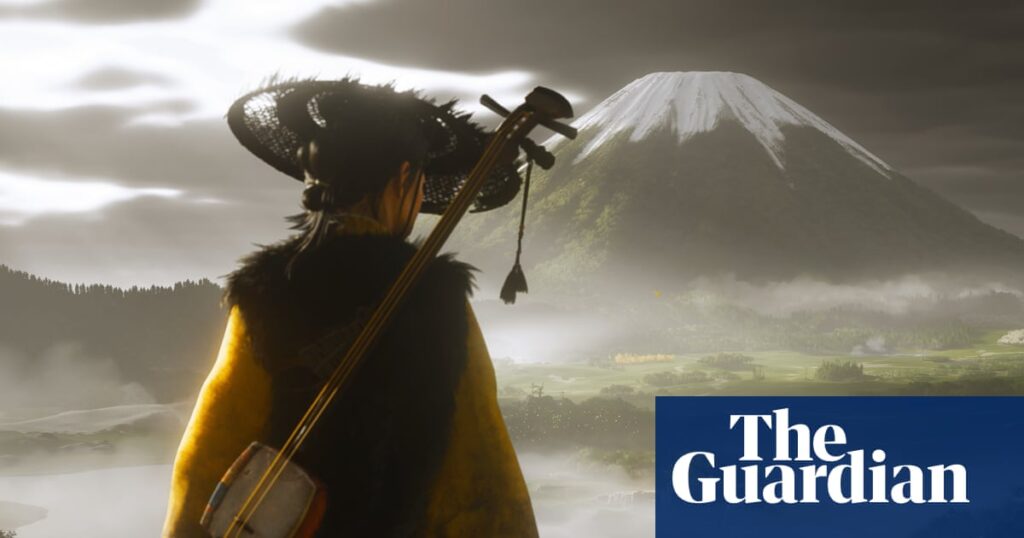Atsu is no samurai. The lead character in Ghost of Yōtei is a wandering sellsword from a lowly family. Her sex and lack of status mean that, following the murders of her family, she has no fixed place in 17th-century Japanese society, and there is no permitted path for her to tread if she is to get revenge on the Yōtei Six, the men who killed her loved ones. As the game’s co-director Nate Fox puts it, “Atsu is not somebody who walks in to a room and people pay respect to.”
Yōtei’s predecessor, Sucker Punch Productions’ 2020 sprawling open-world game Ghost of Tsushima, is the story of a samurai, Jin Sakai, who shreds his honour to defend his homeland. Jin can’t repel the Mongols attacking Tsushima as a noble warrior, but as “the Ghost”, a fear-inspiring legend willing to use any dirty tactic to gain the upper hand, he can. If Ghost of Tsushima is about a man grappling with the trade of one kind of power for another, Yōtei sees Atsu seize the only power she can with both hands.
Atsu adopts the mantle of an onryō, a revenge spirit from Japanese folklore. By embracing this legend, she becomes a figure of fear to her enemies. While the resulting game is similar to Tsushima – in Ghost of Yōtei you also travel across a romanticised open-world recreation of feudal Japan on horseback, carving up your enemies with precise strokes of your katana – the shift from high-class samurai to vagrant sellsword shows itself in unexpected ways.
“She has a different life than Jin, and we want to bring that out through interactivity,” Fox says. That means removing Ghost of Tsushima’s contemplative moments, such as those during which Jin would meditate on his surroundings and transform his struggle into haiku. “Jin was a scholarly samurai; he would pause to reflect and take in the beauty of nature. Atsu is not that person.” Those moments softened the rough edges of Tsushima, a mellowing that Sucker Punch doesn’t want to apply to the feral world of Yōtei. Atsu doesn’t write poems; she collects bounties as she hunts down the warriors that stalk Hokkaido.
Sucker Punch also expresses the difference in protagonists with a subtle innovation for open-world games: a movable campsite. “We like creating features that are tonally supportive,” Yōtei’s other game director, Jason Connell, says. “Camping is something you would expect in a world like this.” And Fox adds, “Atsu’s a sellsword used to sleeping rough”.
As game worlds have expanded and the numbers of questlines and upgrade trees have multiplied, it has created a barrier of administration between players and the worlds they’re exploring. Instead of moving on foot, they use fast travel to warp between markers on the map. “It’s discordant,” Connell says. One moment you might be in a tropical forest fighting mercenaries, the next you’re on a mountaintop upgrading a weapon before hopping to a beach to deliver a quest item. Atsu’s camp is Sucker Punch’s attempt to redress this disruption and wrap the world around the player. Quest givers, shopkeepers and key characters will now visit you, providing a way to continue your journey without interrupting the flow of the story. “It’s a convenience,” Connell says, “and a more diegetic experience.”
In this way, Yōtei is set to be both an evolution of Ghost of Tsushima and an inversion. Set 300 years after the first game and on the other side of Japan, with the player wearing the sandals of a character from the opposite end of society, it promises to be a familiar world filled with unexpected change.

